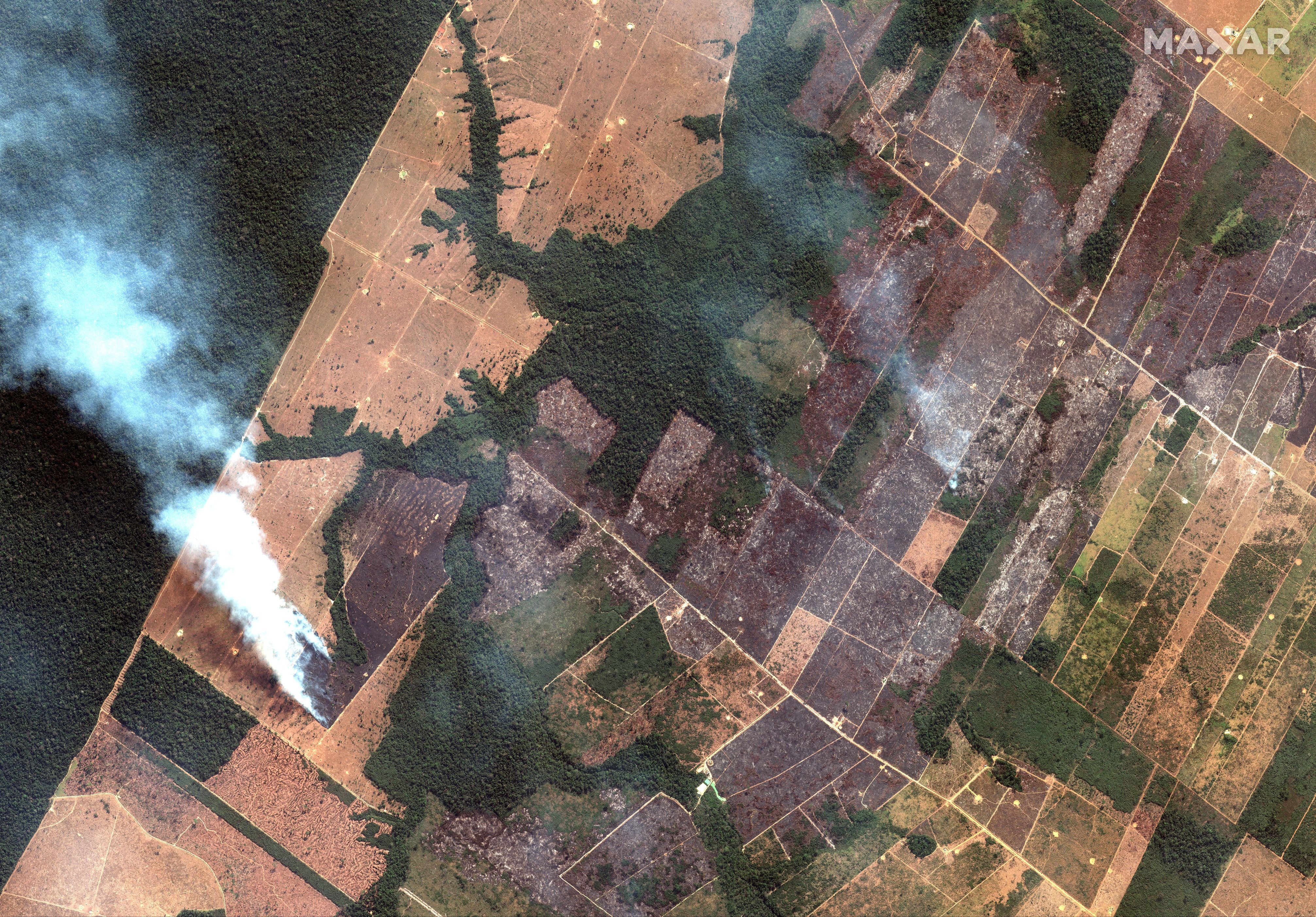August 23, 2019
The Amazon in flames – More than 70,000 forest fires are burning in Brazil right now, most of them in the Amazon. That's up 84% over the same period last year, and it's the highest number on record. This is the dry season when farmers burn certain amounts of forest legally to clear farmland. But critics say Brazilian president Jair Bolsonaro's efforts to loosen conservation rules have encouraged farmers, loggers, and miners to set more fires, many of them illegally. Bolsonaro – a science skeptic who recently fired the head of the agency that tracks deforestation – says, without proof, that NGOs are setting the fires to embarrass his government. Meanwhile, the EU is holding up a major trade deal with Brazil unless Bolsonaro commits to higher environmental protection standards, including those that affect the Amazon.
Fake flames interlude: if you are sharing photos of the Amazon in flames – and go right ahead, because the Amazon produces 20% of the oxygen in our atmosphere – just make sure they aren't fakes.
Korea and Japan stop sharing intelligence – Ongoing tensions between Seoul and Tokyo over the legacy of Japan's 20th century occupation of Korea spilled from trade into national security this week, as Korea said it will scrap the two countries' military intelligence-sharing alliance. The timing, just as North Korea has started lobbing missiles into the Sea of Japan again, is…not great: Washington had pushed for that intel alliance as part of its efforts to address the threat posed by Pyongyang's nuclear program. We're watching to see whether these historic frenemies can find a way to save face and back down before someone gets hurt or a missile goes undetected.
What We're Ignoring
The G7 Summit in Biarritz – Heck of a time to get together for a summit: Italy's prime minister resigned just three days ago. Germany's Angela Merkel is on her way out of power. Canada's Justin Trudeau is reeling from an ethics scandal and faces elections soon. The UK's Boris Johnson is trying to play chicken on Brexit with an unmoved Brussels. Japan's Shinzo Abe is in a rapidly-deteriorating spat with South Korea. Donald Trump wants to know why his pal Vladimir Putin isn't invited to these things anymore. And host country France's Emmanuel Macron has already announced that there won't be a joint communique at the end of the summit because the leaders won't really agree to anything. So while there will be the usual headlines and tweets and gaffes, we are ignoring the summit because nothing of substance seems likely to come from it.
More For You
Americans are moving less — and renting more. Cooling migration and rising vacancy rates, especially across the Sunbelt, have flattened rent growth and given renters new leverage. For many lower-income households, that relief is beginning to show up in discretionary spending. Explore what's changing in US housing by subscribing to Bank of America Institute.
Most Popular
Walmart sponsored posts
Walmart’s commitment to US-made products
What's Good Wednesdays
What’s Good Wednesdays™, February 4, 2026
World Central Kitchen staff hand out free soup in a neighbourhood that experiences electricity and heating outages following recent Russian attacks on Ukraine’s civilian infrastructure during subzero temperatures in Kyiv, Ukraine February 3, 2026.
REUTERS/Thomas Peter
1,170: The number of high-rise buildings in Kyiv that were left without heating following a barrage of Russian attacks last night on Ukraine’s capital and its energy facilities, per Kyiv Mayor Vitali Klitschko.
Protesters gather during a candlelight vigil, and interfaith prayer at Fort Lauderdale-Hollywood International Airport as airport workers and faith leaders rally calling on the federal government to extend Temporary Protected Status for Haiti on Jan. 28, 2026.
Diaz/Miami Herald via ZUMA Press Wire
Over the past five years, Haiti has endured extreme political turmoil, escalating violence, and one of the world’s worst humanitarian crises.
Microsoft unveiled a new set of commitments guiding its community‑first approach to AI infrastructure development. The strategy focuses on energy affordability, water efficiency, job creation, local investment, and AI‑driven skilling. As demand for digital infrastructure accelerates, the company is pushing a new model for responsible datacenter growth — one built on sustainability, economic mobility, and long‑term partnership with the communities that host it. The move signals how AI infrastructure is reshaping local economies and what people expect from the tech shaping their future. Read the full blog here.
© 2025 GZERO Media. All Rights Reserved | A Eurasia Group media company.
